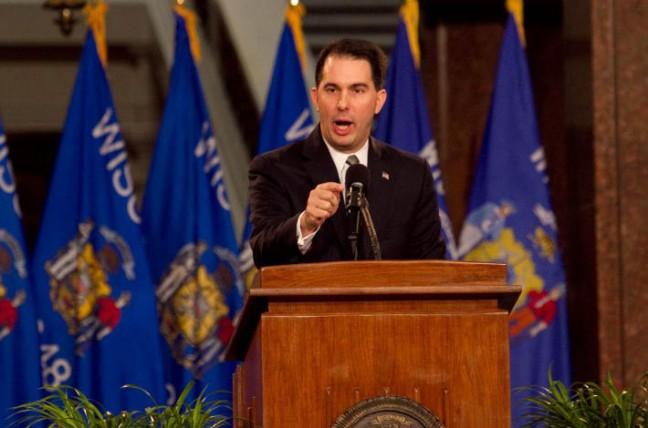The focal issue in the gubernatorial campaign is job growth, which, unsurprisingly, is accompanied by the question of minimum wage. During the first gubernatorial debate, Gov. Scott Walker claimed his minor investments in worker training were an effective means to improve human capital and fill available jobs that require technical school education. In an interview with the Journal Sentinel, he went as far as saying a minimum wage “does not serve a purpose,” and could only induce job losses. I implore Gov. Walker and other hesitant skeptics to examine the data and reconsider.
Walker never answered whether he believed the minimum wage was a living wage, and also neglected to address his ideal minimum wage. He repetitively articulated his desire for people to work for more than the minimum, which they can supposedly do as a result of his relatively minor investments in worker training. The problem is that not all those that are working minimum wage jobs can feasibly access education, and there will always be people trying to support themselves and their families on minimum wage.
Furthermore, if Walker wants a more educated labor force to fill open jobs, he should reconsider his cuts to education that include $71.6 million in annual state aid to technical colleges. Though it is true he has supported one-time aid of over $100 million to these schools (and has frozen tuition for the UW-System, as he will constantly remind you), remember that Walker’s administration has also enacted the “biggest cuts to education in our state’s history.”
Consider this. Since 1968, the actual minimum wage has not kept up with inflation. Worker productivity and output has doubled, but this is not reflected in the minimum wage. Earnings of the top one-percent have tripled, adjusting for inflation, while the value of a minimum wage income is lower than it was in 1968.
To be clear, this is not by any means a ‘liberal idea’ or partisan practice. The general price level of goods is consistently increasing and consequently congressional sessions of both Democratic and Republican majorities have modestly increased the minimum wage 19 times since 1955 to account for this inflation.
I examined every year with a national decrease in jobs since 1955 (of which there are 12), only 25 percent of those were years following an increase in the minimum wage. At most, the negative effects of the minimum wage is negligible and not a significant factor contributing to job loss. Maybe this is what Walker meant when he said it does not serve a purpose – but I really doubt that.
The effect on companies is not necessarily negative. By increasing the general amount of disposable income in the hands of potential customers, spending will consequently increase, putting money back into businesses.
The 13 states that have raised their minimum wages above the national minimum wage saw job growth at higher rates than those that did not. Cause and effect is difficult to determine in this relatively small sample size, but I reiterate that the effect on job loss is still nowhere to be seen.
Hesitant conservatives should take an honest evaluation into raising the minimum wage. This does not need to be a partisan issue – we all can agree that increasing disposable income and spending has positive economic consequences. Especially when job losses have not proved to result from raising the minimum wage, it is simply incorrect to go as far as saying its existence “does not serve a purpose.”
Omer Arain ([email protected]) is a sophomore majoring in political science and economics.














